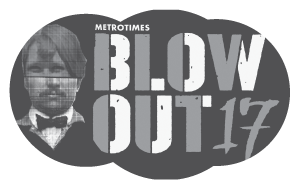In 2008, 63% of Michigan voters approved the use of medical marijuana. However, medical marijuana is not legal under federal law, and is causing some confusion in Michigan courts.
“You still cannot sell marijuana,” said Attorney Shawn Coppins of Coppins Law Group. “Still you cannot have a hand-to-hand transaction, money in exchange for marijuana, and people don’t realize that. Now, you can compensate your care provider for their time if they’re providing you marijuana, but to pay for marijuana with cash is still illegal.
So, it’s a very fine line of distinction that we’re dealing with.”
The medical marijuana possession limit for Michigan is 2.5 ounces or 12 plants. Coppins questions how the legal system constitutes a plant or how it will measure 2.5 ounces of usage. “These small sprouts and seedling plants, do they constitute a plant?” Coppins asked. “And the 2.5 ounces, how do we quantify that? What if they use marijuana to create a preparation like marijuana brownies? Then, do we figure out how much marijuana was in there or do we weigh the entire pan of brownies that has been made?”
Michigan isn’t the only state without an official and approved plan to measure the amount of marijuana in someone’s system. Coppins said the law hasn’t caught up with medical marijuana and, as of now, there’s no community standard in the law regulating its use. “Judges are handling things differently as well, because some judges will allow you to use medical marijuana while on you’re on probation to the court while other judges have said, “No, we’re not going to allow that because it still violates federal law,” Coppins said. “So until that is appealed and goes up through the process, up to our Supreme Court, and we have a firm decision on it, there will be a difference of opinion among the various courts.”
Legislation written for medical marijuana applies to state laws, not federal, and legislation has yet to outline the terms of medical marijuana usage with regards to driver license restoration, circuit and district court issues, and workplace employment. Terence Brown, co-owner of Onsite Substance Abuse Testing and New Frontier Counseling Services with Jacob Fakhoury, stressed the importance of medical marijuana cardholders knowing and understanding their rights.
“Understand what you’re getting into; that there are consequences and repercussions for you trying to get this medical marijuana card. So we’re not saying this is bad or not, just know what you’re getting into,” Brown said.
Coppins also cautions medical marijuana cardholders to ask questions and educate themselves on the laws of medical marijuana. “For instance, I don’t think a lot people, when they get their marijuana card, consider the possibility that smoking marijuana and driving would result in a drugged driving conviction,” Coppins said.
According to the Department of State, police officers can legally pull drivers over for Operating While Visibly Impaired (OWVI); meaning your ability to operate a vehicle has been impaired because of alcohol or other drugs. “That’s a completely subjective standard on the part of the officer,” Coppins explained.
Amy Hostinsky, a lead clinician for Onsite, warns clients not to think of the medical marijuana card as a Get-Out-Of-Jail card.
“Ultimately, a lot of times, the clients that I see will have been in trouble because they got a possession charge because they did not have their medical marijuana card,” Hostinsky said.
Because the legislation for medical marijuana is constantly evolving, Hostinsky said, it’s harder to get a medical marijuana license. “So a lot of people are more willing to take the risk of just getting it illegally than having to go to the doctor, having to pay the fines, and the fees,” Hostinsky said.
As the Michigan Medical Marihuana Program continues to develop the law, Coppins urges cardholders to stay current with its changes to avoid violations for its usage. “When this law came out, it seemed to be very easy to get a medical marijuana card,” Coppins said. “And now they’re requiring a bona fide patient-physician relationship and that’s one of the things that stands out in the revised DMA (Medical Marihuana Act), is that physician-patient relationship and defining what it is.”
Onsite Substance Abuse Testing and New Frontier Counseling Services have been providing lab confirmation drug test services, drug and alcohol testing (urine, hair, and saliva,), DNA testing, and counseling services for almost 10 years. Program specialities including drivers license restoration evaluations, employee assistance programs, anger management, domestic violence, counseling services, and more.
Onsite has offices is Ferndale, Warren, New Hudson, Ypsilanti, and Redford. An average of 5,000 patients are seen yearly by Onsite’s certified licensed counselors and social workers. For more information call the Ferndale office at (248) 399-8032.
If slightly happened with our heartiness, we believe there is a solution to any maladies in a preparation. What medicines do patients purchase online? Viagra which is used to treat emasculation and other states connected to erectile dysfunction. Learn more about “sildenafil“. What folk talk about “viagra stories“? The most substantial aspect you should look for is “sildenafil citrate“. Such problems commonly signal other problems: low libido or erectile dysfunction can be the symptom a strong heartiness problem such as heart trouble. Causes of sexual disfunction include injury to the penis. Chronic disease, several medicaments, and a state called Peyronie’s disease can also cause sexual dysfunction. Even though this medicine is not for use in women, it is not known whether this medication passes into breast milk.










